
Epic Mysterious and Majestic India Tour
Hanuman Mandir Delhi
Mother Masala Tours
Honoring Strength and Faith
Hanuman Mandir Delhi. Also known as Hanuman Temple, stands as one of the oldest and most significant temples dedicated to Hanuman. This sacred site was constructed in the early 18th century, around 1724, during the reign of the Mughal Emperor, Shah Jahan. More than a place of worship - it represents a crucial intersection of spirituality and history within the bustling capital city. The temple is built in a traditional design, featuring an ornate entrance adorned with intricate carvings and a striking idol of Hanuman, who is depicted in a posture signifying strength and devotion.
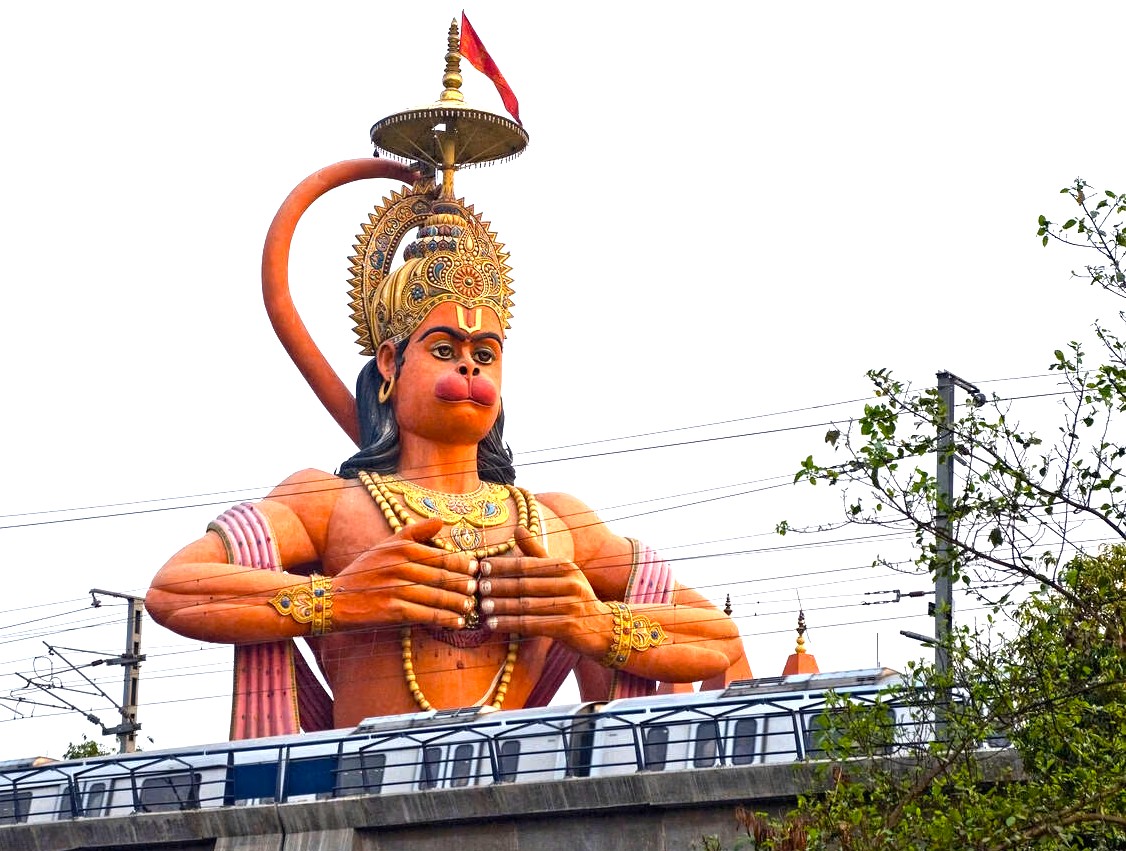
Hanuman Mandir Delhi: Timeless Artifacts
Home to a variety of artifacts that highlight its historical significance and spiritual essence. The main idol of Hanuman, crafted from a single block of stone, is one of the temple's most revered treasures. This lifelike depiction is believed to capture the essence of devotion, strength, and loyalty that Hanuman represents. The temple complex also features various smaller shrines dedicated to other deities, fostering an inclusive atmosphere of reverence. Visitors can observe traditional art forms reflecting the rich cultural heritage of the region, including intricate murals and carvings depicting stories from the epic Ramayana.
Ancient Mosaics: Impeccable Craftsmanship
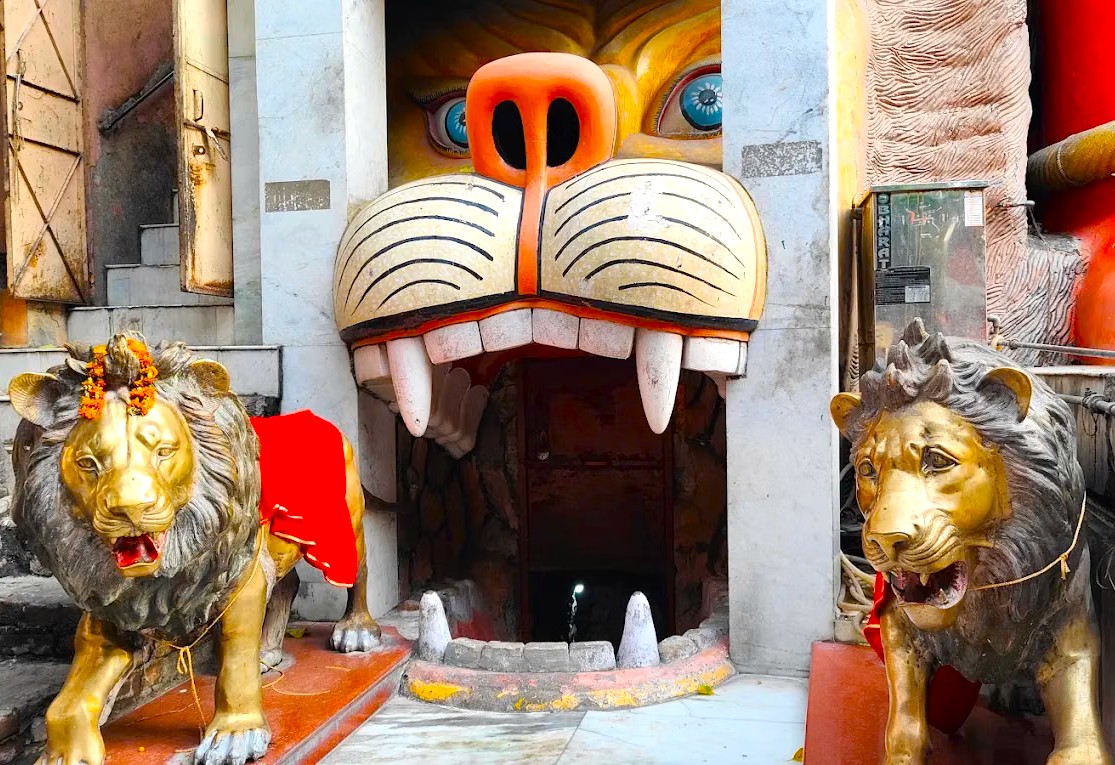
The craftsmanship reflects the intricate artistry prevalent in its time. The temple's facades and interiors are adorned with elaborate carvings and frescoes, illustrating various scenes from Hindu mythology, predominantly the Ramayana, which recounts the exploits of Rama and his faithful companion, Hanuman. Dedicated artisans from the region contributed to the ornamentation of the temple, combining local artistic styles with influences from Mughal designs. This fusion created a unique visual narrative. Each carving tells a timeless story, bringing legends to life.
The Pulse of the Local Community
Hanuman Mandir Delhi. The community is characterized by a sense of hospitality and warmth. Locals take pride in maintaining the cultural traditions that have established the temple as a focal point for spiritual life in Delhi. This friendly atmosphere encourages numerous interactions among worshippers, promoting a sense of belonging and kinship. The locals engage actively in temple activities, from organizing festivals to helping with daily rituals. Their dedication is evident, contributing to an environment that fosters sharing knowledge of the rituals and significance of different festivals celebrated at the site.
A Culinary Journey: Savor the Flavour
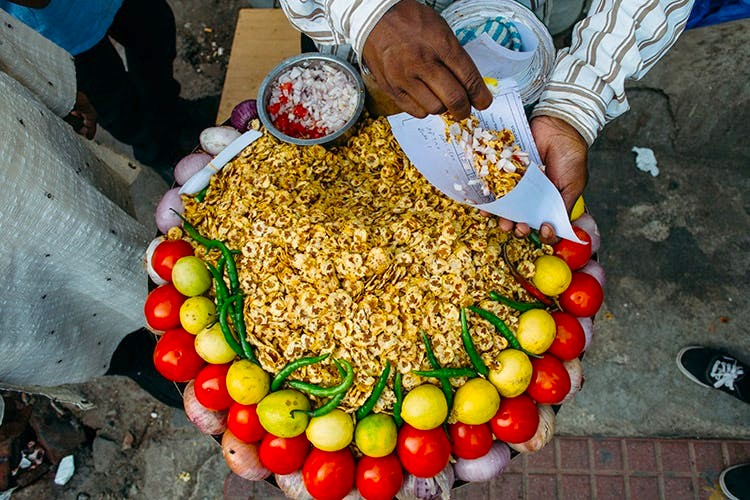
As we delve into the culinary scene nearby, we discover a unique must-try specialty - Makki di Roti with Sarson da Saag. This dish, popular in North India, particularly during the winter months, features flatbreads made from corn flour paired with a rich, mustard greens curry. Makki di Roti is made by kneading corn flour with water and shaping it into flat discs that are cooked on a hot iron griddle until they develop a crispy texture. Sarson da Saag - mustard leaves, garlic, ginger, and spices, offers a wonderful contrast. Its earthy flavors blend perfectly with the rustic flatbread, pure bliss.
Capturing the Magic: A Photographic Haven
The Mandir offers a plethora of opportunities forwonderful photography. The grand idol of Hanuman, with its impressive dimensions, serves as a striking focal point against the intricately adorned temple backdrop. The detailed carvings, vibrant wall paintings, and local devotees engaged in prayers present visually appealing moments waiting to be captured.
The Connection with the Gods
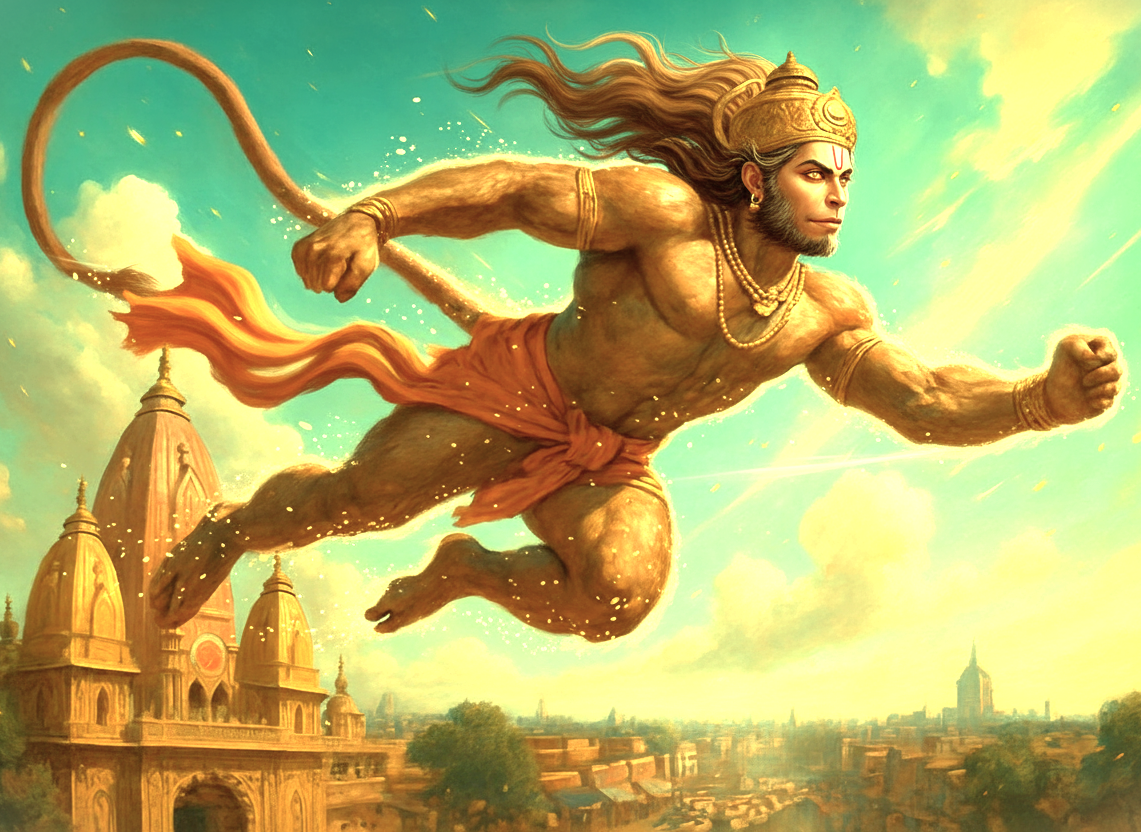
Hanuman, the deity worshipped here, a symbol of strength, devotion, and selfless service in Hindu mythology. His narrative is primarily derived from the ancient Indian epic, Ramayana, where he plays a crucial role as Rama's companion and messenger. Hanuman's unwavering loyalty and courage resonate deeply, offering followers a source of inspiration. The stories recount how Hanuman helped Rama in the quest to rescue his wife, Sita, from the demon King Ravana. His incredible feats, such as leaping across the ocean and carrying mountains, exemplify his divine power, bringing strength into their own lives.
Ancient Technologies: Sound, Sacred Geometry & Astrological Influences
Hanuman Mandir Delhi. Hanuman Mandir Delhi stands as a testament to ancient knowledge, blending sacred geometry, sound engineering, and astrological precision to create a deeply spiritual atmosphere. Designed in alignment with Vastu Shastra, the temple’s layout harnesses cosmic energy, centering it within the sanctum to amplify its spiritual vibrations. The dome is purposefully built to enhance natural acoustics, creating a resonance chamber that magnifies chants and mantras. When prayers such as the Hanuman Chalisa are recited, the resulting sound frequencies reverberate harmoniously throughout the structure. These vibrations, combined with the precise positioning of idols according to planetary alignments, foster a tranquil and meditative environment.
Festivals of Devotion: Honouring the Sacred and the Divine
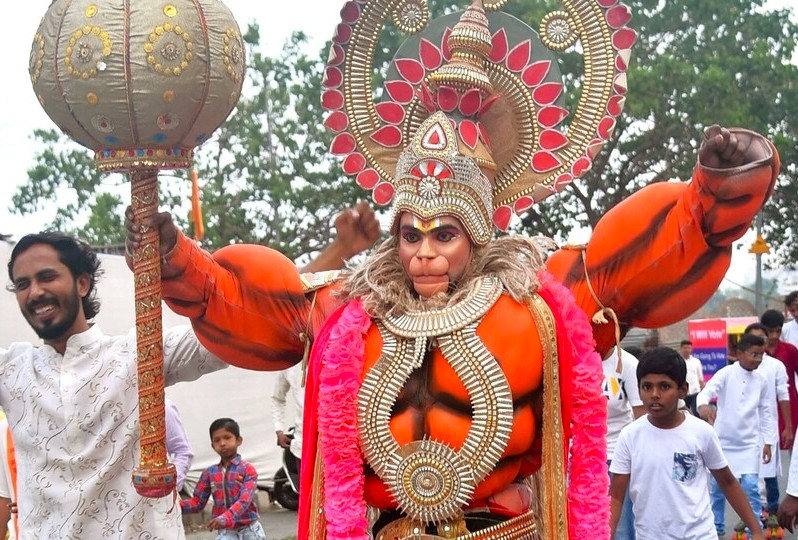
A central site of worship during various festivals that celebrate devotion to Hanuman. Among the most notable is Hanuman Jayanti, observed on the full moon in Chaitra (March-April). This festival honors Hanuman's birth, and celebrations begin early with special prayers, offerings, and chanting of Hanuman Chalisa. During this occasion, the temple attracts throngs of devotees who join together in festivities. The air fills with chants and spiritual fervor, creating an uplifting atmosphere. Families gather, strengthening bonds and deepening connection to Hanuman.
Serendipitous Meetings: Beyond the Main Path
The area surrounding the Mandir reveals unexpected treasures that enrich our journey. As we walk the streets, we might discover small artisan shops where craftspeople create traditional handicrafts, from hand-painted pottery to intricately woven textiles. These hidden spots provide a glimpse into the local artistry and culture that thrived long before the area became a bustling commercial place. The marketplace nearby often features street vendors who sell handmade snacks, handcrafts, and local artifacts.
Resilience and Renewal: Overcoming Adversity’s Challenges
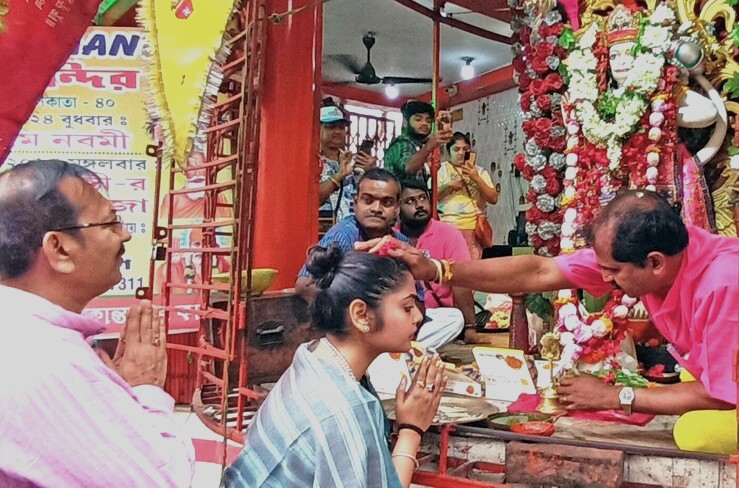
Hanuman Mandir Delhi. The history reflects the resilience of faith in the face of challenges. Over the years, the temple has undergone various phases of restoration and improvement to preserve its sanctity. One notable event occurred in 1947, during the partition of India, when communal tensions threatened many places of worship. The loyal local community came together to safeguard the temple, demonstrating their commitment to preserving its legacy. This profound act of unity ensured its survival through a period of immense upheaval and distress.
Urban Legends: Strange Sightings, Myths and Mysteries
Steeped in urban legends and intriguing tales that contribute to its mystique. One popular story involves the presence of a mysterious light said to appear near the temple during the late hours, believed by some to be a manifestation of Hanuman himself, watching over his devotees. Another legend narrates the story of a devotee who prayed earnestly for relief from suffering. It is said that upon making his wishes known, he experienced a miraculous transformation in his life, leading others to believe in the power of faith and devotion present at the site.
Dust Off the Suitcase - It’s Time for India
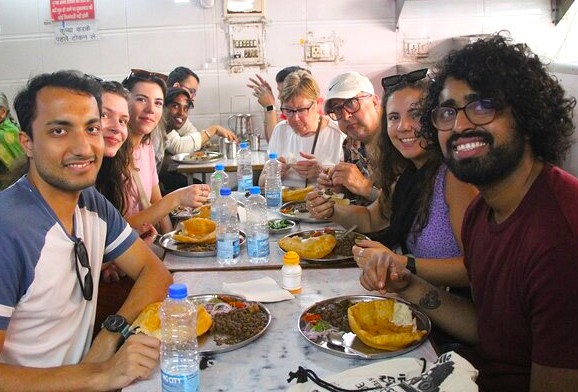
You’re invited to immerse yourself in the spirit of Hanuman Mandir as we explore its rich heritage. Walking through the temple grounds, we will uncover the stories, traditions, and artistry that have shaped this historic site. Join us in experiencing the atmosphere, partaking in local rituals, and engaging with the community that breathes life into this space. Through stories and collective experiences, we capture the essence of devotion that has thrived here for centuries. This journey offers a profound sense of connection to ancient wisdom and spiritual practices.
Symphony of Generosity: Offerings from Wanderers to Residents
The relationship between the locals and those who come to Hanuman Mandir fosters a thriving community enriched by shared experiences. Travelers often bring their appreciation for the temple, eager to learn about its history, while locals share stories and offer glimpses into their daily lives. This interchange benefits both residents and those seeking spiritual connection, promoting mutual respect and understanding. The sales of handmade crafts and local delicacies contribute to the livelihoods of artisans and vendors, preserving the cultural heritage of the area.
Step Inside The Story - View All Tour Itineraries & Details
We’re here to offer genuine, thoughtful guidance for your travels. As a small, dedicated team, we pay close attention to every detail so you can focus on enjoying the experience while we take care of the planning. We believe the best trips begin when someone truly listens to what you want and how you like to travel, so the journey feels right for you and contributes to a happy, positive group on tour. Our communication stays clear, straightforward, and respectful at every step, with the goal of helping you feel understood, supported, and confident from first contact to the end of your journey. Click here:- Discover Life Travel - India Tour Specialists